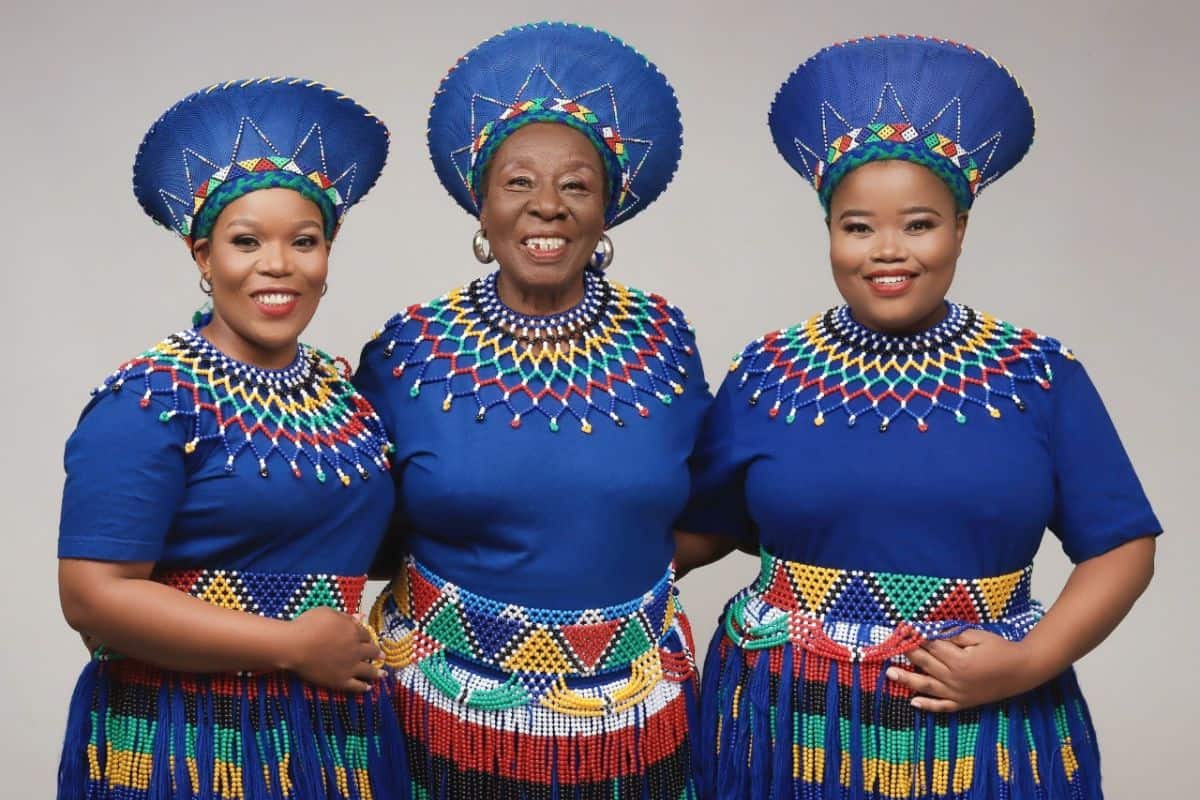Mahotella Queens' Hilda Tloubatla spoke to The Citizen after the group returned from a two-week tour of Tokyo.

Unlike the remaining founding member of Ladysmith Black Mambazo, Albert Mazibuko, Mahotella Queens’ last original member, Hilda Tloubatla, still tours internationally with the band for performances.
“The thought of retirement is nowhere in my body or my mind. There’s nothing wrong with me, I am the same Hilda that I used to be, it’s God’s gift,” Tloubatla told The Citizen.
Mazibuko still performs with Ladysmith Black Mambazo but no longer does international shows.
“This is God’s gift …because I didn’t start singing as an adult when we started the group [Mahotella Queens] in 1964. No. Even when I was at school when I was young, my teachers wanted me to be part of groups at school. I’m now 83 years.”
Tloubatla spoke to The Citizen after Mahotella Queens’ two-week tour of Tokyo, in Japan.
ALSO READ: Ladysmith Black Mambazo embark on North American tour without founding member Albert Mazibuko
Younger Mahotella Queens
Tloubatla joined Mahotella Queens in 1964 as a 22-year-old and was part of the pioneering group Mahlathini and the Mahotella Queens, who were at the forefront of the new genre of the time, Mbaqanga, in the mid-1960s, to mid-1970s.
Mahlathini and the Mahotella Queens were one of the most active live performance acts from South Africa, with regular visits to North America, Europe and Asia.
Leading man, Simon ‘Mahlathini’ Nkabinde, passed away in 1999, but Tloubatla and two fellow singers and original members, Nobesuthu Mbadu and Mildred Mangxola, continued performing as the Mahotella Queens.
Mbandu and Mangxola were forced into retirement due to ill health and eventually passed away. Tloubatla recruited Amanda Nkosi and Nonku Maseko, with whom she now performs.
Tloubatla shared that her two younger bandmates began performing with the Mahotella Queens even when the original and late members were still alive.
“We performed with them at a concert in KwaThema and I could see that these are the Mahotella Queens. That’s why even when the other ladies [original members] started getting sick and passed away, I asked them to join.”
“They are exactly what the two ladies used to be,” said Tloubatla of the younger members.
ALSO READ: Nduduzo Makhathini on being criticised by ‘scholarly world’ after appearing on MacG podcast
Back to Japan
Mahotella Queens just wrapped up a two-week tour of Tokyo in Japan. However, this wasn’t Mahotella Queens’ first time in the Asian country.
“We were in Japan in 1991 several times. But for this group [new members], it was the first time. Everything went well, the shows were good, they are always excited when we’re there.”
Tloubatla said most of their gigs come from overseas, although they do still do some shows locally.
In addition to mentoring the young Mahotella Queens, Tloubatla is mentoring new band members she went on tour with.
Drummer Tshepa Diale, Khola Phalatse, who is a bass guitar player, keyboard player, Dj Sepelete and Kagiso Monapane on lead guitar.
Mahotella Queens are one of the headline acts at next month’s Folklore Festival at the National School of the Arts, Johannesburg, from 11 to 13 September.
The festival, in its fourth edition, has established itself as the definitive platform where traditional African narratives meet contemporary artistic expression, creating sacred spaces for intergenerational dialogue and cultural preservation.
NOW READ: Not sure how to commemorate World Folklore Day? The Folklore Festival could be a good start
Support Local Journalism
Add The Citizen as a Preferred Source on Google and follow us on Google News to see more of our trusted reporting in Google News and Top Stories.








